About
All industries are investing in robotics and automation for developing interesting applications, optimizing and enhancing productions and industrial processes in effective and economic ways. Robots have revolutionised the manufacturing and industrial world in recent decades, they are starting to make their move into the wider world of business as well as our homes. [Forbes]. A Bachelor of Technology (B.Tech) programme in Robotics and Animation should equip students with a strong foundation in robotics and animation, integrating theoretical knowledge with practical skills. Some of the key attributes to look for in a B.Tech programme in Robotics and Animation, which is offered at NCU, one of the top robotics and automation Engineering schools in Delhi/NCR include – Core Robotics Courses, Animation Fundamentals, state-of-the-art facilities and industry collaborations which help students achieve a very high level of competency and skill sets.
The NorthCap University is one of the best colleges for B.Tech Mechanical Engineering in Delhi, and this specialization in Robotics and Automation course offers students the opportunity to learn new and disruptive technologies and enable them to develop innovative instruments to monitor, manipulate and control systems. By being a part of one of the best private engineering colleges in Delhi NCR region, students will use fundamental concepts of the theory of mechanism, microsensors and actuators to develop humanoid robots, intelligent control systems and flexible manipulators. The students will graduate with special skill sets and values to achieve professional goals in process automation and robotics.
Market Trends of Robotics and Automation
The robotics market was valued at USD 39.72 billion in 2019 and is expected to register a CAGR of 25% over the forecast period of 2020-2025. [Mordor Intelligence]
- With an uptick in robot sales from 2011 to 2018, the buzz around robotics is loud. [McKinsey]
- The International Federation of Robotics (IFR) estimates that in 2017, there were around 2.1 million stand-alone industrial robots installed worldwide, with a shipment of 381,000 units globally. [McKinsey]
Unique Selling Points of this B.Tech Mechanical Engineering with Specialization in Robotics and Automation Program
- Explore the knowledge of mechanical, electrical, computer science and artificial intelligence in the design of engineering systems processes and products.
- Explore the application of advanced simulation software like Mat lab and Machine learning in the different process industry
- Career Options: Robotics engineer, automation engineer, control engineer design engineer, industrial and process control Engineer
- Market driven curriculum updated periodically in consultation with experts from industry and academia.
- State-of-the-art laboratory facilities
- Efficient and highly qualified faculty members
- Outstanding industry-academia interaction through expert sessions, industrial visits, internships, professional societies and workshops.
- Emphasis on holistic development of students through promotion of co-curricular activities and professional societies in the department.
- Excellent placement track record.
Programme Educational Objectives (PEOs)
PEO I (Technically Accomplished): To provide an in-depth understanding of Mechanical Engineering fundamentals leading to a foundation of research in different areas of competence to facilitate progressive careers in industry and pursuit of higher studies.
PEO II (Socially Responsible): To inculcate ethical, environmental, and societal responsibilities that will contribute to professional organizations and society benefits.
PEO III (Innovation Driven): To equip our students with technical and analytical skills to develop innovative solutions to complex real-life problems keeping abreast with the ever-changing technology and be fully aware of the business, managerial, quality, cost, and time constraints.
PEO IV (Team-based Leadership qualities): To equip our students with sufficient communication & interpersonal skills, multi-disciplinary teamwork, and leadership skills to enable them to fulfill professional responsibilities
Programme Outcomes (POs)
Engineering Graduates will be able to:
PO I: Engineering knowledge: Apply the knowledge of mathematics, science, engineering fundamentals, and an engineering specialization to the solution of complex engineering problems.
PO II: Problem analysis: Identify, formulate, research literature, and analyse complex engineering problems reaching substantiated conclusions using the first principles of mathematics, natural sciences, and engineering sciences.
PO III: Design/development of solutions: Design solutions for complex engineering problems and system components or processes that meet the specified needs with appropriate consideration for public health and safety, and cultural, societal, and environmental considerations.
PO IV: Conduct investigations of complex problems: Use research-based knowledge and research methods including design of experiments, analysis, and interpretation of data, and synthesis of the information to provide valid conclusions.
PO V: Modern tool usage: Create, select, and apply appropriate techniques, resources, and modern engineering tools including computational, numerical, and modelling to complex engineering activities with an understanding of the limitations.
PO VI: The engineer and society: Apply reasoning informed by the contextual knowledge to assess societal, health, safety, legal and cultural issues and the consequent responsibilities relevant to the professional engineering practice.
PO VII: Environment and sustainability: Understand the impact of the professional engineering solutions in societal and environmental contexts, and demonstrate the knowledge of, and need for sustainable development.
PO VIII: Ethics: Apply ethical principles and commit to professional ethics and responsibilities and norms of the engineering practice.
PO IX: Individual and teamwork: Function effectively as an individual, and as a member or leader in diverse teams, and in multidisciplinary settings.
PO X: Communication: Communicate effectively on complex engineering activities with the engineering community and with society at large, such as being able to comprehend and write effective reports and design documentation, make effective presentations, and give and receive clear instructions.
PO XI: Project management and finance: Demonstrate knowledge and understanding of the engineering and management principles and apply these to one’s own work, as a member and leader in a team, to manage projects and in multidisciplinary environments.
PO XII: Life-long learning: Recognize the need for, and have the preparation and ability to engage in independent and life-long learning in the broadest context of technological change.
Programme Specific Outcomes
PSO I: Ability to demonstrate an understanding of mechanical engineering courses like Thermal Science, Automobile Systems, Industrial and Production Engineering, and specialized knowledge in CAE, HVAC, Manufacturing, robotics, and automation, in line with market needs and requirements to identify, analyse and solve mechanical and allied engineering problems.
PSO II: Acquire problem solving skills to innovate, plan and execute projects demonstrating system design and managerial skills to become successful technologists, entrepreneurs, and researchers in the field of mechanical and allied engineering.
PSO III: Develop skills to apply acquired knowledge by demonstrating an aptitude towards societal problems and sustainable development indicating holistic development as an individual. Enable our graduates to have a global outlook and be competitive, in pursuing employment opportunities in the public and private sector or advanced and higher education.
Internal BOS Committee
Download Scheme
B.Tech scheme 2018-19
Download Scheme
B.Tech scheme 2019-20
Download Scheme
B.Tech scheme 2020-21
Download Scheme
B.Tech scheme 2021-22
Download Scheme
Syllabi & Course Outcomes
Download Scheme
Minimum Eligibility Criteria
B.Tech – ME SPECIALIZATION IN ROBOTICS & AUTOMATION (ME)
1). 10+2 (English Medium) examination conducted by Central Board of Secondary
Education or equivalent examination from a recognized board in Science stream (With
PCME as compulsory subjects) with an overall aggregate of Minimum 50%
2). Must Appearance in JEE Main/CUCET/IP Eng Entrance Test/NCU Entrance Test / Any
National Level Entrance Test 2022
3). As one time measure to overcome the COVID 19 impact students with JEE/NATIONAL
LEVEL TEST SCORE 2021 will also be considered for admission for AY 2022
Bachelor of Technology Lateral Entry (3 Years)
– Candidate should have studied his/her 10th/12th class in English medium
– Candidate should not be more than 24 age on 31st Dec. 2021
– Candidate should have passed Diploma in relevant branch of Engineering granted by the Board of Technical Examination of a State Government with at least 60% aggregate marks in the qualifying exam.
Selection Criteria
Or
JEE Main 2021 score
Or
SAT score
Should seats still remain vacant, in any course, if at all, after exhausting the merit list of applicants of the National Test(s), seats may be filled on the basis Aptitude Test, NCU EET subject to meeting the minimum eligibility criteria specified.
Bachelor of Technology Lateral Entry (3 Years)
Students will be selected as per the merit list prepared on the basis of marks in the State LEET exam and the marks obtained by the applicant in Diploma. Weightage of these scores are 80% and 20% respectively
Seats
| Programme | Seats |
| B.Tech – ME SPECIALIZATION IN ROBOTICS & AUTOMATION (ME) | 20 |
Financial Assistance

Programme Fee
For Year 2022-23
FOR INDIAN STUDENTS
FOR NRI STUDENTS
Hostel Fee (where applicable) Rs. 75,000/- per semester
Fee Concession cum Scholarship
| % of Scholarship | Eligibility (For CBSE as per percentage score in applicable subjects (PCME) by program. Normalised Scores will be taken for other Boards with respect to CBSE) |
| 35% | CBSE: 95.1% and above |
| 25% | CBSE: 90.1%<= 95 |
| 10% | CBSE: 85%<= 90 |
- 20% scholarship on the tuition fees to the university employees’ ward/wards in the First Year Only
- 15% scholarship of the tuition fees for the university Alumni ward/wards, in the First Year Only
- For B.Tech Program, Marks in Physics, Chemistry, Maths & English in the Class XII examination conducted by CBSE or equivalent examination from a recognized board will be considered for scholarship criteria. For Boards other than CBSE, normalized scores as decided by scholarship and admission committee will be considered for scholarship criteria.
- Scholarships to be announced and reimbursed only after completion of admissions for AY22-23. Students who apply by the cutoff date will only be eligible for scholarships. Cutoff date will be notified during the admission process.
- There are a limited number of scholarships that will be served only on the basis of merit, if there are higher number of students in a particular scholarship bracket, the students in the order of merit will be shifted to immediately lower bracket
- Students applying with 2021 scores are not eligible for scholarships.
- Scholarships seats will be reduced on the pro-rata basis of actual enrolment.
- Scholarship not to be offered for any programs with less than 30 enrolments.
- Minimum CGPA of 8.50 is required to carry forward scholarship after first year and must have passed all the examinations and there should not be any disciplinary action against the student
- At any point of time during an academic year, a student can avail of benefits from one scholarship plan only. Student who once avail any scholarship will not be eligible for any other scholarship
- The management reserves the right to change the scholarship policy as per their discretion
- The scholarship will be awarded based on the above criteria at the sole discretion of the Admission and Scholarship Committee
